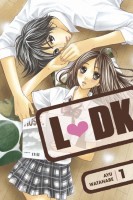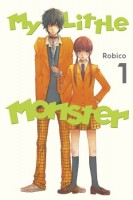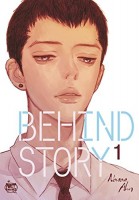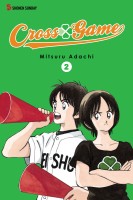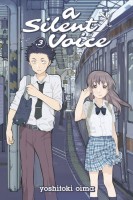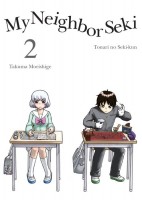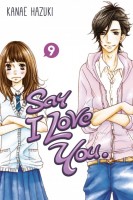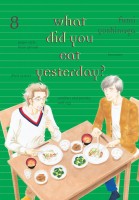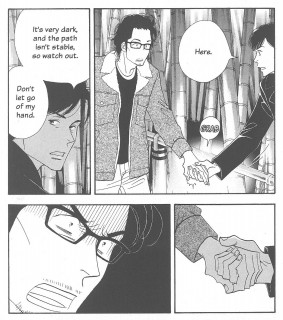And the winner of the Kodansha Shoujo Smorgasbord manga giveaway is… Rebecca!
As the winner, Rebecca will be receiving four first volumes of shoujo manga published by Kodansha Comics: LDK, Volume 1 by Ayu Watanabe; Let’s Dance a Waltz, Volume 1 by Natsumi Ando; My Little Monster, Volume 1 by Robico; and Say I Love You, Volume 1 by Kanae Hazuki. Kodansha usually isn’t the first publisher I think of when I think of shoujo, but I’ve really been enjoying some of the shoujo manga that it has licensed. For this giveaway, I asked that participants tell me a little about their favorite Kodansha shoujo manga. As was pointed out by several people, Kodansha also releases quite a few shounen series which have tremendous shoujo crossover appeal. Check out the the giveaway comments for all of the responses!
Some of the shoujo (and josei) manga available from Kodansha Comics:
Arisa by Natsumi Ando
Attack on Titan: No Regrets by Hikaru Suruga
Codename: Sailor V by Naoko Takeuchi
Fairy Tail: Blue Mistral written by Hiro Mashima, illustrated by Rui Watanabe
I Am Here by Ema Toyama
Kiss Him, Note Me! by Junko
Kitchen Princess by Natsumi Ando
LDK by Ayu Watanabe
Let’s Dance a Waltz by Natsumi Ando
Manga Dogs by Ema Toyama
Missions of Love by Ema Toyama
My Little Monster by Robico
No. 6 by Hinoki Kino
Pretty Guardian Sailor Moon by Naoko Takeuchi
Pretty Guardian Sailor Moon: Short Stories by Naoko Takeuchi
Princess Jellyfish by Akiko Higashimura
Say I Love You by Kanae Hazuki
Shugo Chara! by Peach-Pit
Shugo Chara Chan! by Peach-Pit
Tokyo Mew Mew written by Reiko Yoshida, illustrated by Mia Ikumi
Tokyo Mew Mew a la Mode by Mia Ikumi
The Wallflower by Tomoko Hayakawa
Thank you to everyone who shared your favorite Kodansha shoujo manga (or shounen manga with a shoujo flair) with me. I hope to see you all again for the next giveaway!

